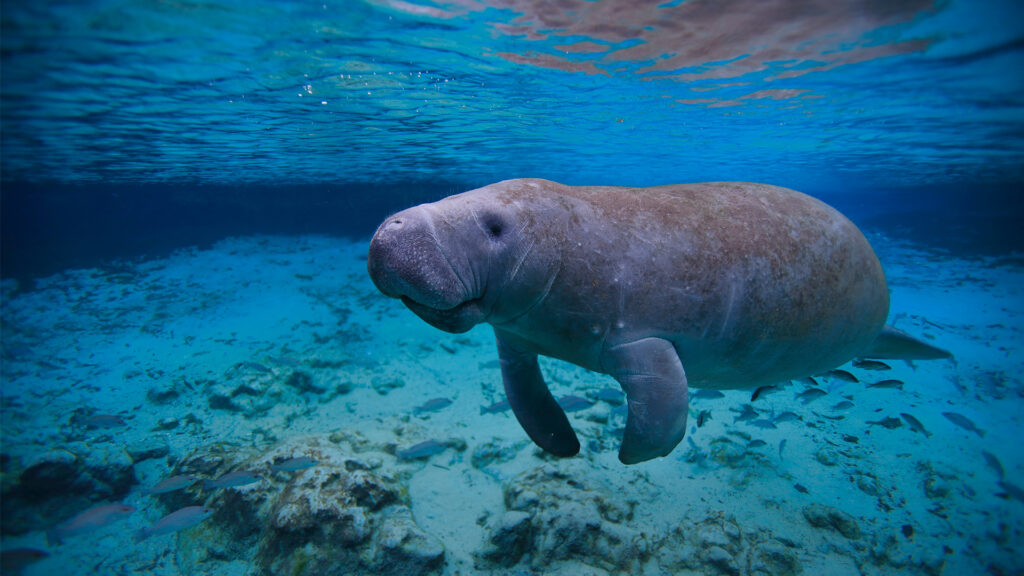A roundup of news items related to climate change and other environmental issues in Florida:
Famine sends Florida manatees back to the brink | Florida Today

Few mammals saved under the Endangered Species Act are as iconic, beloved or bickered about than the Florida manatee. Now the petitioners and lawyers are lining up yet again to save the starving sea cow.
Decades of pride and millions of dollars are at stake riding on the species salvation.
A paucity of seagrass, the animal’s main food source, has led to manatees dying in droves, to the extent that for the past two winters wildlife officials had to toss them lettuce to survive in the wild.
Florida’s new high-speed rail linking Miami and Orlando could be blueprint for future travel in U.S. | CBS News
As Thanksgiving approaches, millions of Americans are gearing up for holiday travel. AAA projects that over 55 million people will travel more than 50 miles, which would make this Thanksgiving the third-busiest on record.
This year, a significant development in travel options comes from Florida, where a new rail line connects Miami and Orlando. The service — the only privately owned, multi-city railroad in the U.S. — was launched less than two months ago, and is already profitable and seeing a rise in ridership.
Brightline, which offers the new service, first launched in 2018 with service between Miami and West Palm Beach. Its trains, which can reach speeds of 125 miles per hour, have seen a 116% increase in ridership this year. The company anticipates accommodating approximately 4.3 million passengers annually between South Florida and Orlando by 2025.
Glades communities to get 1,000 new trees in $1M environmental justice project | WLRN
A new $1 million environmental project will bring up to 1,000 native trees to parks in low-income communities in Palm Beach County.
Shade trees can be hard to find in some parts of South Florida — and with climate change making weather ever more extreme, that can have a significant impact in residents’ quality of life.
That’s particularly the case in communities such as those in the Glades region which, despite being rural, have a low rate of canopy coverage due to a history of segregation and under-investment.
If you have any news items of note that you think we should include in our next roundup, please email The Invading Sea Editor Nathan Crabbe at ncrabbe@fau.edu. Sign up for The Invading Sea newsletter by visiting here.



